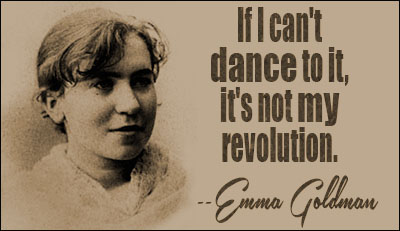A look at the paths we need to take to balance the current #mainstreaming. Mess begets more mess, embrace It, but strategically is the starting point of the #OGB project, recognising that solving crises will inevitably create new complications. This isn’t defeatist but pragmatic. Understanding that “messy consensus” is a natural state of grassroots activism both online and offline allows us to embrace imperfection while striving for progress. How can we build tools to work with this balance, we need paths that don’t eliminate mess but help us navigate it constructively.
Messy consensus vs. formal consensus, is basic, that “almost nothing that works, works with formal consensus” is both an indictment of rigidity and a call to trust human intuition and collective messiness. Formal consensus processes prioritise idealised decision-making frameworks over functional, timely action. Messy consensus in practice, decisions that evolve through ongoing dialogue, negotiation, and iterative adjustments. A focus on getting things done rather than endlessly perfecting processes.
The #OGB Project approach is based on #KISS (Keep It Simple, Stupid) by documenting messy consensus in action rather than try to force-fit solutions into rigid structures. The wider #OMN is about building software tools that reflect this dynamic, fluid, adaptive, and capable of handling the inherent unpredictability of real world grassroots organising.
Grassroots movements need patience and realism, activism is hard work, rife with delays, frustrations, and the risk of spiralling into unproductive behaviours. The example of delays being full of “shittiness all round” is all too common. The solution is to focus, implement basic accountability and communication tools to reduce friction (e.g., clear timelines, transparent updates). Design paths where delays can’t derail core progress (e.g., smaller, autonomous working groups with clear boundaries).
The #geekproblem and governance failures, technologists operate under the illusion that technology is apolitical, seeing themselves as neutral actors. This leads to tools and systems that perpetuate power imbalances rather than address them, then governance struggles inside this #techshit. On the more #NGO paths, governments and corporations alike fail because they attempt to apply dated paradigms (territorial governance, Soviet-style technocracy, and unchecked market competition) to globally networked paths.
#OGB and the #openweb native paths are about building politically aware technologies that understand their social impact and are actively shaped by the communities they serve. This is about moving beyond individualistic thinking to balance paths where decisions are made collectively and equitably, guided by progressive shared values and principles.
Metadata isn’t trivial, it’s often more revealing than the data itself. Governments and corporations weaponise it for control. However, this control relies on perpetuating individual isolation and the illusion that society doesn’t exist. A core path is challenging the #deathcult mentality and this death spiral of isolationism. The idea that individuals are isolated entities, disconnected from society, aligns with the deeply reactionary mindset of the #deathcult. It’s this ideology that drives surveillance capitalism, authoritarian governance, and ecological collapse.
The #OMN is about countering the death spiral by build networks and technologies that grow solidarity, collective agency, and a sense of shared purpose. To make this happen, we need to call out reactionary ideologies wherever they manifest, but with patience and a focus on education. The Internet is a commons, not an empire. The internet’s potential is currently squandered by treating it as a platform for profit-driven empires. With the #OMN instead, we cultivate a shared common, reflecting the principles of the #openweb. With commons-based governance, we move away from corporate models and toward federated, community-led governance. Interoperable ecosystems, prioritise open standards that allow diverse communities to connect without being locked into monopolistic kingdoms.
The #OMN contribution, is about documenting the failures of current systems and demonstrate the viability of federated, grassroots alternative paths. And from this building the cultural and technical infrastructure necessary to support an internet that is truly by and for the people. Practical steps are acknowledging the mess, start with the reality of our messy paths and systems rather than pretending they don’t exist. Then use this understanding as the foundation for solutions. Promote realistic timelines, by accepting that grassroots organising moves slower than we’d like, but ensure delays are constructive rather than paralysing. Focus on education, misunderstandings stem from a lack of digital literacy and political awareness, we need patience and persistence to mediate messy processes through practice.
In conclusion, how can we shape the world without being covered in shit. Yes, the path is messy, imperfect, and filled with hard work, but that’s no reason to despair. The #OMN projects offers a grounded approach that prioritises doing over theorising, embracing messy consensus as a strength rather than a weakness. By rejecting the #deathcult of individualism and building on the principles of the #openweb, we create paths that reflect the reality of grassroots organising: chaotic, collaborative, and, ultimately, transformative.






